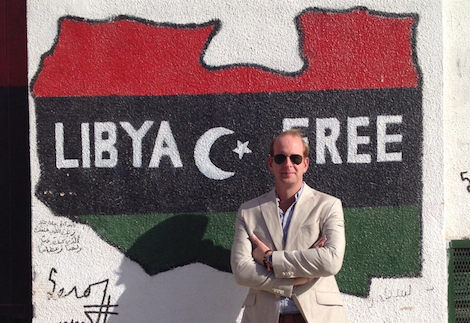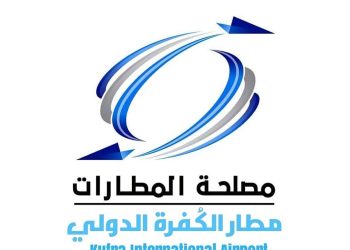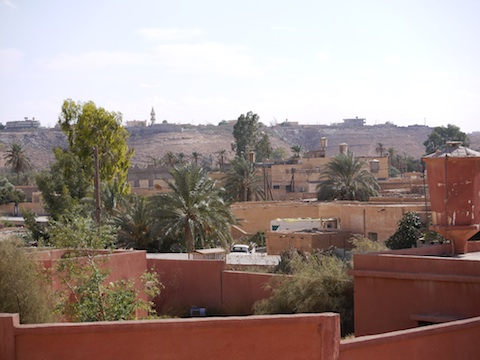
Tripoli, 28 October:
What is the American Chamber of Commerce in Libya?
The American Chamber of Commerce in Libya (AmCham Libya), is an affiliate of the United States Chamber of Commerce (www.uschamber.com)
AmCham Libya is organisation that seeks to foster economic development by American companies in Libya through the promotion of regional trade and investment, business development, public policy advocacy, human resources development and business community outreach.
AmChams were not allowed in the time of Qadaffi. Even bilateral trade was not allowed by Qaddafi. This is the first AmCham in Libya. Amcham is an official American chamber of commerce to support American industry in Libya. We are not part of the State Department and are governed by the United States Chamber of Commerce.
However, we are proud to work with the American embassy specifically with the commerce section and sometimes with the military section and the political section. It is important for us to work in conjunction with the United States government both here in Libya and in Washington to ensure that we are giving American companies the most accurate and meaningful information. It is always impressive to see how open the Embassy is to supporting the growth of trade in a given country, and Libya is no exception
We also work with the US department of commerce in Washington DC on specific programs that allow information sharing and outreach to both the public and private sector.
As we are based in Libya, the AmCham has a strong connection with on-the-ground information as well as direct contact with key decision makers within the Libyan Government. This is important as other groups do not have a physical presence in Libya, and I personally feel this is an important investment of time and human capital.
What role did you play in the founding of the U.S.-Libya Chamber of Commerce?
As I have worked in both the private and public sector, I was pleased that I was given the honour of serving as the President of the American Chamber of Commerce in Libya.
I worked with AmChams around the world in places such as Colombia and Guatemala. It is a strong institution as there are over 100 AmChams around the world and they are all connected. AmChams are US Chambers of Commerce in foreign countries; they are part of US Chamber of Commerce; we are an independent affiliate of the US Chamber of Commerce.
After working to support a team the was highly involved in the international recognition of the National Transitional Council, I became involved in Libya from April 2011, coming from an advisory role in Colombia.
I was convinced that I needed to work with Libya and help the people, as through private initiatives we could really foster and bring about change to this country. This is an important element of democracy to have a free market and access to products and people from all parts of the globe.
As I worked in both governmental and private sectors, this was the perfect position as it was an intersection between the two. The importance of the two elements working together is fundamental and in Libya it is without question the best way to develop this nation.
My role as the president of the AmCham is to bring American companies to Libya and to advise them on security, government policy and business opportunities within the country. It was a hard thing to do at the beginning. My initiative and my focus was to use and bring the American private sector in an ethical and controlled manner as it is important not to use delegations of 100s of companies, as the French and Germans did. They came with 100s of companies and this approach may have overwhelmed the Libyan side. I feel that it is best to bring select companies that meet requirements, both near and long term.
Is there a large interest among US businesses to expand or develop in Libya?
Many of the major multi-national companies that are part of the chamber are now opening up regional offices in Libya and, better still, using Libya as the regional office in North Africa. Companies opening soon are Textron, Cummin engines, AM general and Pepsico. In addition, there are many others such as Aspect Energy, OshKosh, AmGeneral, Cessna, Bell Helicopter, General Dynamics, and Microsoft that are working within Libya in sectors outside the fields of oil and gas, which of course attracts many other large American firms.
To what extent do you believe transparent and effective dialogue between the US and Libyan government will benefit the AmCham members? And in what ways?
I am sure that now, the US government sees Libya as a priority. They believe that Libya is going to be one of the most important countries, politically and economically.
On the US side, the dialogue has improved as confidence has grown. Other countries see Libya as a place to take money and leave. The Libyan government looks into this when selecting partners for trade; they look for long-term, stable relationships. Cooperation and sharing of information is important to both countries. The American mentality is for long-term growth and stability and this is something I am sure will be significant to Libya as the country develops.
How well-informed is the American Congress regarding the impacts of a bilateral economic relationship between the US and Libya?
I believe that they are well informed. Through the direct visits of large US companies that have an influence over the US government, Washington has been giving information about Libya and I believe that Congress has become much more aware and educated about the country, and much more focused on how they can support trade. Companies that are present here in Libya continuously send reports back to the State Department about the situation in Libya, and the information sent is used in making decisions.
In what ways will the AmCham encourage Libyan companies wanting to work in the US, conducive to increasing two-way business?
We are seeing a lot of Libyan businessmen who went to the West and came back to Libya with the American know-how and language; they have the American understanding of US corporations. We welcome Libyan Americans because they give us such insight as to how the country works, but we also welcome all Libyans seeking to work and invest in America.
The secret to the AmCham is that we involve and bring Libyan nationals to serve as committee directors as they give us tremendous insight into programmes and projects happening in Libya.
This relationship also helps foster stronger political and diplomatic ties with Libyan business leaders, as they are able to work with us. As a Libyan company they are welcome to join the AmCham and in fact, this is a great way for US firms to engage and interact with Libyan counterparts.
What has been your personal experience of Libya?
I have been motived by the force and the resolve of the Libyan people. Each day I am reminded of why I am here and the small role I play in bringing the two worlds together (the US and Libya). Each time I have a new corporation or delegation visit Libya I am proud of how they are given such a warm and genuine welcome.
What was behind the decision to establish the AmCham now, in the current circumstances, rather than waiting to see how Libya progresses?
That’s simple. To show that Western society and businesses want to be here to support Libya.
Anything related to business is a competition. To be in Libya at the moment when they the country is rebuilding is much more challenging but rewarding than it would be five years from now. In order to support the development of a free market society and ensure that Libya has access to American enterprise it was critically important to establish a presence here. I am proud to be able to represent America and to promote commercial relations between our two countries.
What kind of activities does the Amcham plan to undertake in order to improve conditions in the telecommunication, transportation, tourism and financial sectors?
First of all, we bring the experts and they do what is needed. We have plans of bringing power plant programmes, Corporate Social Responsibility, Aviation, Telecom firms and defence training firms
Libyans are extremely well educated about technology. We also have plans to bring transportation and infrastructure companies here. I am also working to develop a programme to bring US healthcare corporations to Libya to support the Ministry of Heath.
There are American companies coming here and it is our job to make them feel that they are welcome here.
Do you do any work with the Libyan government? If so, with which sectors?
Yes, we gave advice to the HNEC regarding the elections, media crisis management and how to engage with the international media. We do communicate with the Ministry of Interior, the Ministry of Health, the Ministry of Defence, the wider security sector and the civil aviation sector. We would also like to help with the Ministry of Culture in the fields of media and communications.
Ministries ask us for training and equipment and we then bring in the people that supply that. However, it’s not only about Americans selling products; we also provide help and support. The Libyans are very open-minded and are highly educated, but they are aware of the inevitable impediments imposed upon them during the past 42 years.
What is your comment about the tragic event that took the lives of Ambassador Chris Stevens and other Americans in city of Benghazi?
The tragic events that unfolded in Benghazi, which lead to the death of Ambassador Chris Stevens as together with three of his dedicated colleagues has sent a shock wave throughout the entire country.
I am reminded each day that we must fight to bring true democracy and freedom to Libya and clearly the vast majority of the Libyan people shared in our mourning.
We as the American Chamber of Commerce extend our hearts and condolences to the families, co-workers and to all those touched by this horrific event and we will continue to support the advancement of relations between American industry and the people and Libya
The governing principles of the United States Chamber of Commerce, to which we are affiliated, are advancing human progress through an economic, political and social system based on individual freedom, incentive, initiative, opportunity and responsibility, and we will endeavour to honour those principles. Now more then ever our two nations must come together to fight against those who support violence and oppose access to a free society.
Richard H. Griffiths is the President of the American Chamber of Commerce in Libya. He has specialised in communications, diplomatic affairs and international affairs for developing nations. His posting prior to Libya was Colombia.
Griffiths has worked with NASA, started several corporations and advised governments on international affairs on three continents. He is based in Tripoli, Libya and serves as the link between US firms and Libya.
The chamber’s website is www.amcham.ly and Richard Griffiths may be reached at [email protected].
[/restrict]








